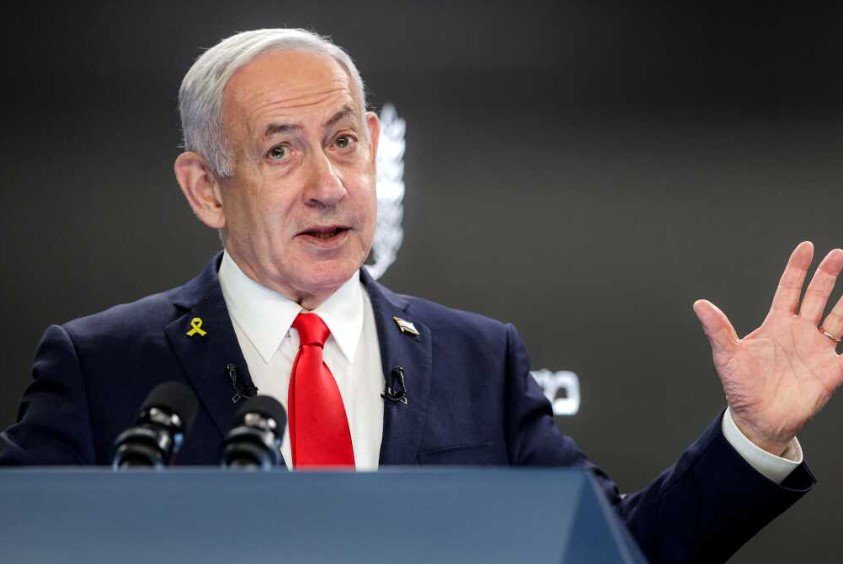Israel’s prime minister insists war aims are about security and hostage release, pushing back on global criticism and Gaza starvation claims.
Prime Minister Benjamin Netanyahu stood before an unusually large group of foreign reporters in Jerusalem on Sunday, rejecting accusations that Israel plans to permanently occupy the Gaza Strip. Nearly two years into the war with Hamas, and days after approving a new offensive on Gaza City, he said the objective was to “free it from Hamas” and hand governance to a civilian administration that would not threaten Israel.
He was emphatic: the war, in his words, should end “as soon as possible” — but only once Hamas’s military grip is broken.
Offensive on Gaza City Sparks Debate
For Netanyahu, capturing Gaza City isn’t about holding land, but about rescuing the roughly 50 hostages still trapped inside the enclave. Critics, however, warn that intensifying the offensive could cost those same hostages their lives.
The security establishment is split. Some commanders argue a swift push will break Hamas command structures. Hostage families fear the opposite.
His cabinet’s decision last week gave the green light to a “major expansion” of operations in Gaza City. Netanyahu framed it as the fastest route to both dismantle Hamas and secure the captives’ release. “Only by tightening the pressure,” he said, “can we bring them home.”
One sentence carried an edge — “We will not be deterred by fear of our enemies’ threats.”

No Permanent Occupation, Civilian Governance Envisioned
In Netanyahu’s telling, Israel has no desire to return to the days of directly ruling Gaza, as it did before withdrawing in 2005. Instead, he spoke of a “civilian administration” — Palestinians governing Palestinians, but without ties to groups committed to Israel’s destruction.
That vision is thin on specifics. Who would run it? Would the Palestinian Authority be involved? Netanyahu did not say. He simply stressed it would be “a local solution, not an international experiment,” hinting at a distrust of foreign-led reconstruction or UN oversight.
For now, the focus, he maintained, is still the war.
Pushing Back on Gaza Starvation Allegations
Midway through his briefing, Netanyahu turned sharply to address accusations of Israeli-imposed starvation in Gaza. He called it a “global campaign of lies” orchestrated by Hamas.
Then he listed three cases that had drawn international headlines — cases he said were “the most celebrated examples” of alleged famine caused by Israel’s blockade. All three, he insisted, were false.
-
Case one, he said, involved a child’s death misattributed to hunger, when hospital records showed an unrelated illness.
-
Case two centered on viral images of emaciated residents, which he claimed were months old and taken outside Gaza.
-
Case three, he argued, was a misrepresented UN food delivery report, which omitted Israel’s facilitation of multiple aid convoys.
“People have fallen for this hook, line and sinker,” he said, clearly frustrated at what he viewed as a distortion of the conflict.
Clash With International Opinion on Palestinian Statehood
Netanyahu also used the press conference to push back against another international consensus: that Palestinian statehood is the path to long-term peace. Calling it “absurd,” he argued that Palestinian leadership’s core aim is “not about creating a state; they’re about destroying one.”
This blunt framing echoed his long-standing skepticism of two-state proposals. His stance has drawn sharp criticism from European capitals and the Biden administration, both of which still publicly back a negotiated two-state outcome.
In private, Israeli officials admit such rhetoric may deepen diplomatic rifts — but Netanyahu’s domestic base often rewards his uncompromising tone.
War Enters Prolonged Phase Despite End Goal
Despite saying he wants the war over quickly, Netanyahu acknowledged that defeating Hamas is a drawn-out process. Two years of airstrikes, ground incursions, and targeted raids have weakened but not destroyed the group’s fighting capacity.
A senior military official, speaking separately, said Hamas retains “core command resilience” in certain neighborhoods of Gaza City. That makes the upcoming offensive both risky and potentially decisive.
Table: Estimated Status of Hamas Forces in Gaza City (as of Aug. 2025)
| Area | Israeli Control Level | Hamas Presence |
|---|---|---|
| Northern District | Partial | Moderate |
| Central Gaza City | Minimal | Strong |
| Eastern Sector | High | Low |
| Coastal Zone | Partial | Moderate |
The army believes sustained pressure could shift the central zone into a “low” presence category within months — but only if operations are uninterrupted.
Messaging to the World
The dual briefings — one in English for foreign journalists, another in Hebrew for domestic audiences — reflected Netanyahu’s dual challenge: convincing the world Israel is acting proportionately, while reassuring Israelis he’s doing enough to secure their safety.
His tone varied. With foreign media, he was defensive, data-heavy, and dismissive of certain allegations. In Hebrew, he was more combative, playing to the sentiment that Israel must “finish the job” regardless of international disapproval.
By the end of the night, the message was clear — no occupation, no let-up, no apology for pursuing what he sees as Israel’s security needs.








